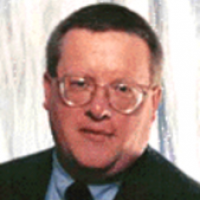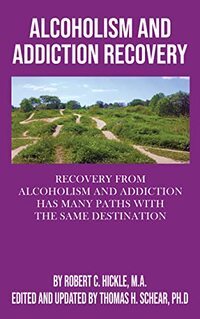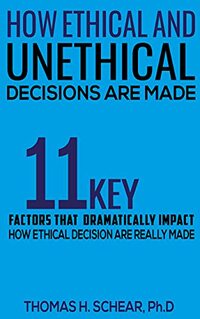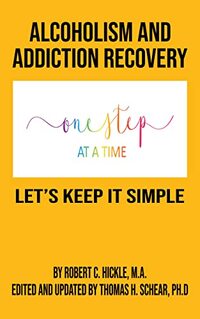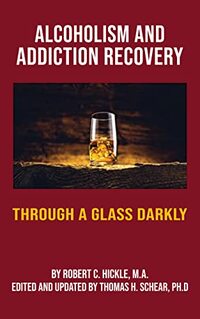Genre:
General Nonfiction- Country: United States
- Books: 4
- Profession: Addiction Counselor/College Professor
- Born: August 20, 1954
- Member Since: Jul 2022
- Profile Views: 7,049
- Followers: 69
ABOUT THE AUTHOR…
Robert C. Hickle was born in 1920 and is a lifelong resident of Iowa. He is a veteran of both the Army and the Navy during World War II. He holds a BA in Psychology from Drake University and an MA in Personnel Administration from the University of Iowa. He and his late wife, Evelyn, have two children and three grandchildren.
Bob started the first employee assistance program in Iowa in 1951 and served on the Iowa State Commission on Alcoholism for eleven years, the last four as Chair. He was the Director of an Employee Assistance Program for the Milwaukee Railroad for about fourteen years, was Personnel Director of a heavy equipment company for 21 years and worked for the Northeast Council on Substance Abuse for several years after his retirement. He has been active in almost every phase of the profession of helping alcoholics find sobriety.
He is an ardent outdoorsman and was a Boy Scout Unit Leader for 21 years. He is a certified lay speaker in the United Methodist Church, and with his wife had written and seen published a curriculum on alcohol problems to be taught at the fifth and sixth-grade levels of the United Methodist Church. He prefers above all to be known as a friend of the alcoholic.
ABOUT THE EDITOR…
In 1977, Thomas H. Schear found his calling in the human service sector. He has worked as a front-line counselor, clinical supervisor, and program director since then. Dr. Schear’s fruitful career includes lecturing education courses on substance addiction as well as mental health counseling, life, and business coaching, in addition to teaching college-level courses in psychology, sociology, and ethics. One of the most remarkable milestones of his career goes back to directing a university’s grief counseling program. Since 2001, he has focused on offering counselors and therapists continuing education options online to help them deepen their knowledge and develop new skills.
As a counselor and clinical advisor with extensive knowledge and experience in the field, Dr. Schear wrote his debut book with one purpose-to clarify for the individual what is going on in their own mind and heart, examine the workings in organizations so there is a better understanding of each when facing ethical dilemmas with the goal to help each to consistently arrive at the most ethical decision. The idea of the ethics book sat on the shelf for years. The model was used when Tom taught ethics courses and whenever he decided to tinker with it a bit. But the original article that Dr. Schear acquired as part of the learning packet when attending the University of Iowa was lost after several moves from Iowa to Montana and back to Iowa. Finally, Tom wrote the book based on his own knowledge and experience added in to round out the content and to make it accessible, applicable, and practical to the reader.
Dr. Schear currently resides with his artist wife Kathy and their dogs Scruffy and Peppy in a small rural town in north-central Iowa where is currently the mayor. He is a Licensed Mental Health Counselor (LMHC) in the state of Iowa. He is also a Master Certified NLP Practitioner, Master Life Coach, Master Business Coach, and certified minister.
Thomas H. Schear's Books
Stay in the loop on books by Thomas H. Schear. See upcoming and best-selling books by the author here. You'll also find the deals on books by Thomas H. Schear.
** Please note that the information or price displayed here may not be the updated. Make sure to double-check the latest book price before buying books.
** Also, there might be other books by Thomas H. Schear not listed on AllAuthor.
| Book |
|---|
Alcoholism & Addiction Recovery: Recovery From Alcoholism & Addiction Has Many Paths With The Same Destinationby Robert HicklePublish: Nov 20, 2021Advice & How To General Nonfiction |
How Ethical & Unethical Decisions Are Made: 11 Key Factors That Dramatically Impact How Ethical Decisions Are REALLY Madeby Thomas SchearPublish: Jul 22, 2014 |
Alcoholism & Addiction Recovery Part 5: Let's Keep In Simple (Alcoholism & Addiction Recovery Parts 1 through 5)by Robert HicklePublish: Oct 24, 2021Advice & How To General Nonfiction |
Alcoholism & Addiction Recovery Part 2: Through A Glass Darkly (Alcoholism & Addiction Recovery Parts 1 through 5)by Robert HicklePublish: Oct 24, 2021Advice & How To General Nonfiction |
Thomas H. Schear Interview On 28, Jun 2023
 "Thomas H. Schear, born in 1954, is an esteemed author and a lifelong resident of Iowa. Having served in both the Army and the Navy during World War II, he brings a unique perspective shaped by his experiences in the military. Beyond his professional accomplishments, Hickle's interests and activities reflect his diverse and compassionate nature. As a Licensed Mental Health Counselor (LMHC) and a Master Certified NLP Practitioner, Master Life Coach, Master Business Coach, and certified minister, Hickle possesses a broad skill set to assist individuals in various aspects of their lives."
"Thomas H. Schear, born in 1954, is an esteemed author and a lifelong resident of Iowa. Having served in both the Army and the Navy during World War II, he brings a unique perspective shaped by his experiences in the military. Beyond his professional accomplishments, Hickle's interests and activities reflect his diverse and compassionate nature. As a Licensed Mental Health Counselor (LMHC) and a Master Certified NLP Practitioner, Master Life Coach, Master Business Coach, and certified minister, Hickle possesses a broad skill set to assist individuals in various aspects of their lives."
The times I would share my ice cream cone with my dog Ginger. I'd take a lick, then she'd take a lick, I'd take a lick, and so on.
As a teenager, what were you obsessed with?Getting out of high school so I could begin to do what I wanted to do with my life.
Can you tell us more about your journey in the human service sector and how you found your calling in this field?I was not good at math or science as an academic discipline but working with people was something I could understand and practice. I found that people would often come to me with their problems, thoughts, feelings, etc. and that I could occasionally be helpful. All I needed was the knowledge, skills and experience to make it a profession.
With your extensive experience as a front-line counselor, clinical supervisor, and program director, what are some of the most significant lessons you've learned about working in the human service sector?I found and I teach my students that being a counselor/therapist requires as much knowledge and skills as any of the "hard" sciences. Additionally, for a counselor and therapist to be good at their craft requires them to be empathetic, non-judgemental, genuine, a good listener which most other professions don't.
Your book focuses on helping individuals understand their own minds and hearts and making ethical decisions. What motivated you to write the book, "How Ethical & Unethical Decisions Are Made" and what unique perspective do you bring to the topic of ethics?The ethics book focuses on both the individual and the organization where they work. I had worked at several agencies; some operated very ethically while others didn't. The book is based on a model that was part of a packet of articles handed out when I attended the University of Iowa and though I was impressed with the content I thought it could be expanded upon and the final work should include ways for the reader to evaluate themselves and their organization to better determine how the reader can measure themselves and their organization with respect to ethical behavior. The idea sat of my desk for years until I finally decided to actually write it all out into a coherent form.
Did you encounter any challenges or obstacles while writing the book, "Alcoholism & Addiction Recovery Part 5"?Alcoholism & Addiction is actually a 5 part set of booklets and I am not the actual author. It is part of a series of 5 booklets written by a good friend (Robert C. Hickle) of mine who was like 30 years older than me and as he was getting ready for retirement I asked him what was going to happen to his booklets after he retired and if/when he were to die. He state the booklets would likely die with him. I offered to work to keep them in print knowing they would likely not sell much and knowing I would continue his tradition of giving away as many of the booklets as were sold. Now the booklets are available as individual booklets, or with 3 available as one book with the remaining 2 as another book, or a compilation of all five booklets as one They are also available in the Kindle format and as Audio Books. I had to slightly rewrite some portions because, as Bob said "I write like I talk", to correct a couple of his references, and I added 3 sections of my own. On the whole, the book/booklets are as Bob originally wrote them.
What sets your book apart from other resources on alcoholism and addiction recovery?The author, Robert Hickle was not a recovering alcoholic. In fact, he would tell you he had never had a drink of alcohol. My understanding is he was raised by his temperate grandmother after Bob's parents were no longer able to care for him due to their alcoholism. That led to over 40 years of working with alcoholics/addicts, setting up employee assistance programs, serving on the boards at both the state and local levels providing counseling services, and writing his booklets. The format of the booklets is unique in a couple of ways. First, they are virtually jargon-free making them suitable for the layperson and the professional counselor. Second, rather than chapters of several pages, "chapters" may be 3 to 6 to 9 paragraphs making it so they can read in just a few minutes covering any given topic.
In your opinion, what are some misconceptions or myths about alcoholism and addiction recovery that you aim to dispel in your book?Robert suggests that alcoholism/addiction is a quest to seek some form spirituality. It's not productive but that was one of his points of view.
As a Master Certified NLP Practitioner and Life Coach, what role do these modalities play in your counseling approach? How do they benefit your clients?I am not a practicing counselor anymore. Rather, I facilitate courses online on topics covering crisis counseling, substance abuse, life and health coaching and grief counseling.
What do you hope readers will gain from reading your book, and how do you make it accessible, applicable, and practical for them?The ethics book is geared toward employers and employees of organizations where ethical issues are a topic of concern and may be something they want to examine. The thing is, it takes a lot of honesty, insight and willingness to make necessary changes to successfully complete the initial self-examination. It is intended to be an ongoing process in an organization. As for the alcoholism booklets, it is written in such as easy to read style that nearly anyone can glean what they need to address their alcoholism/addiction issues, or that of a family member, or, if the reader is a counselor, gain a greater understanding of their clients and themselves as they counsel them.
You mentioned that the original article you acquired during your time at the University of Iowa was lost. How did you reconstruct and refine the content for your book, incorporating your own knowledge and experience?I used the model offered up in the original model when I would train staff and when I'd teach ethics courses and as I did I was able to see the original model's shortcomings and fill in gaps as time passed. Somehow over that time I also lost the original article due to moving from one job to another
You have taught various courses in psychology, sociology, ethics, and addiction counseling. How have these different disciplines influenced your understanding of human behavior and ethics?The reason the title and content of the book refer to both ethical and unethical behaviors is because organizations and individuals fall along a continuum from very ethical to totally unethical with most being somewhere in the middle. The purpose of the scoring systems for both individuals and the organization is to provide a way of objectifying where the organization is at any given time with respect to its ethical/unethical behavior. The model draws from psychology and sociology and though my experience is in the fields of addiction and mental health the book is intended for any type of business, agency, etc.
Lastly, how do you continue to deepen your knowledge and develop new skills in the counseling field? Are there any particular areas you are currently focusing on?One of my current topics which would be my next book involves self-defeating/self-sabotaging behavior. I am also beginning to write a fiction book but have found it to be a challenge to make the transition to the new genre.
How has your experience of being associated with AllAuthor been?My experience with AllAuthor has been great. With me the only real issue is time. With all my interests and projects it is a challenge to find the time to fully utilize what AllAuthor has to offer let alone concentrate on my writing project.
Ask Thomas H. Schear a Question
Have brimming questions to ask author Thomas H. Schear? Ask whatever you like, but keep it appropriate.
** Please note that unanswered questions will not appear on the page. Refrain from posting promotional messages.
